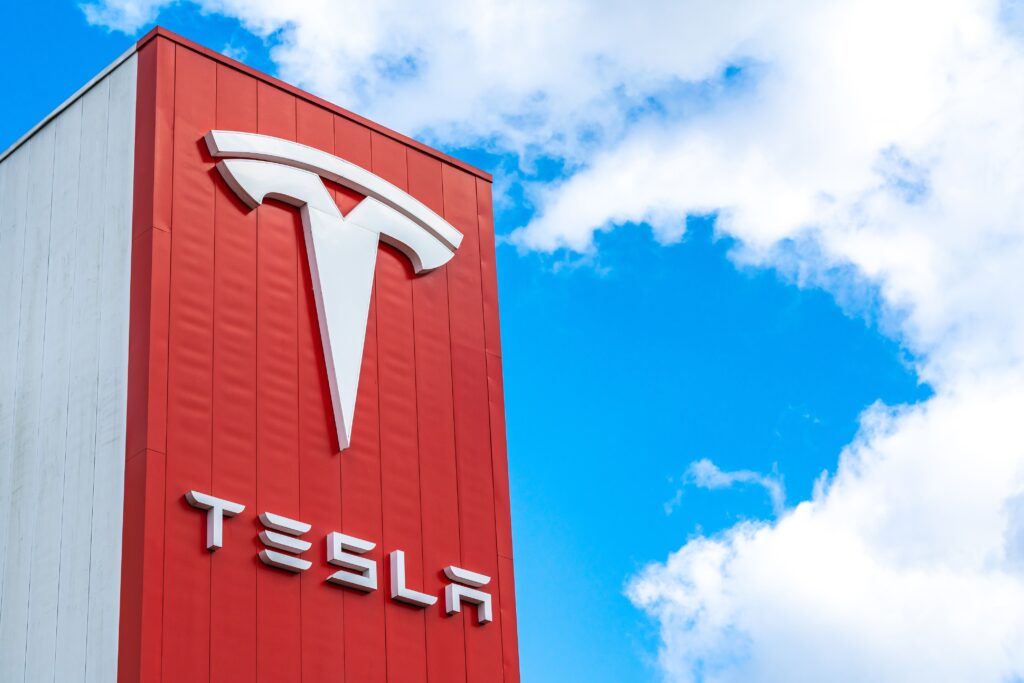Tesla’s stock has been hit hard in 2025, falling 22% so far and losing 37% from its peak in December 2024. This sharp decline has made Tesla the biggest loser among the “Magnificent Seven” tech stocks this year. The company’s troubles are linked to both a sharp drop in electric vehicle (EV) sales in Europe and growing competition from rivals like BYD. Experts believe CEO Elon Musk’s political involvement may have played a role in the brand’s struggle with European buyers.
Tesla’s Disappointing EV Sales in Europe
In January 2025, Tesla’s sales in Europe took a major hit, dropping by 45%. The company sold only 9,945 cars across the continent, as reported by the European Automobile Manufacturers’ Association (ACEA). In contrast, the overall EV market grew by 37% in the same period. Tesla’s performance in 2024 was not much better, with a 13% decline in sales across Europe and a particularly sharp drop of 41% in Germany, one of its biggest markets.
Tesla’s market share in Europe has shrunk drastically, falling from 1.8% to just 1%. In France, the company’s registrations fell by 63%, with only 1,141 cars sold in January. This is the lowest figure since August 2022. In Germany, Tesla sold just 1,277 cars in January, marking the lowest figure since July 2021. Meanwhile, in the UK, Tesla lost out to its Chinese competitor, BYD, for the first time in history.
Musk’s Political Involvement: A Double-Edged Sword
Tesla’s sales slump in Europe coincides with the rising influence of Elon Musk’s political stance. Musk has openly supported former US President Donald Trump, which has raised concerns among European buyers. He has also waded into European politics, most controversially by endorsing the far-right Alternative for Germany (AfD) party. Musk made headlines when he tweeted that “Only the AfD can save Germany” and praised the party’s co-leader Alice Weidel for her performance in elections.
Musk’s comments and actions have stirred political debates in Europe, particularly in Germany and the UK. His stance on UK politics, including a criticism of Prime Minister Keir Starmer over a child sexual abuse scandal in Rotherham, also caused some backlash. Additionally, Musk’s association with Trump, who initiated peace talks with Russia over Ukraine without European leaders and threatened EU tariffs, has added to the controversy.
Many European buyers, especially those who support progressive causes, have been put off by Musk’s political leanings. These tensions have likely contributed to the drop in Tesla’s sales, although the exact extent of the impact is unclear. The political divide between Musk’s actions and European political values may be more of a symptom than the root cause of Tesla’s struggles.
Rising Competition in the EV Market
In addition to political controversies, Tesla is facing intense competition in the EV market. The growing popularity of Chinese electric automaker BYD has been a significant challenge. BYD’s ability to offer lower-priced electric vehicles has made it an attractive option for European buyers. In January 2025, BYD saw its sales increase, continuing to gain ground on Tesla, particularly in the UK, where Tesla now trails behind its Chinese rival.
Tesla’s decline in sales also comes at a time when demand for EVs is affected by rising inflation and stagnating economic conditions. European buyers have become more price-sensitive, and the rising cost of living has made luxury EVs like those produced by Tesla less appealing to many consumers.
Tesla’s future in Europe is also threatened by the growing focus on autonomous driving technology. BYD’s recent partnership with DeepSeek, a leader in AI for autonomous vehicles, has shaken Tesla investors. DeepSeek’s R1 AI model has shown impressive results, competing with Tesla’s self-driving technology at a lower cost. Tesla’s ability to stay competitive in the self-driving market is uncertain, especially as the global race for autonomous vehicles heats up.
Tesla’s Stock Decline and Investor Concerns
The combined effects of declining sales, political controversy, and rising competition have put significant pressure on Tesla’s stock. Tesla’s stock dropped 8.4% in a single day, bringing its market value down to below $1 trillion (€0.95 trillion). This is a significant blow for a company that was once considered a leader in the EV market.
Tesla’s stock has struggled to recover from its December 2024 peak, with its shares falling 37% since then. The company’s performance has raised questions among investors about its future. Tesla’s stock decline has also fueled rumors that the company could be a target for a takeover. Additionally, there has been talk of Tesla moving its stock market listing to the US, where fossil fuel companies are more highly valued.
What Lies Ahead for Tesla?
Tesla’s CEO, Elon Musk, is facing increasing pressure from investors to turn things around. The company has a long road ahead to regain its position in the European market. Whether Tesla can bounce back depends on how well it handles growing competition, the fallout from Musk’s political involvement, and its ability to maintain innovation in the EV and autonomous driving sectors.
Market analysts have noted that Musk’s political stance and controversial comments could continue to play a role in the company’s challenges. Tesla’s ability to navigate these issues and appeal to a broader European audience will likely determine the company’s future success in the region.
Tesla’s stock has already dropped sharply, and the company’s market share in Europe continues to shrink. As the electric vehicle market becomes more crowded, Tesla faces significant hurdles in maintaining its leadership position.
The next few months will be crucial for Tesla’s business. Investors, environmentalists, and consumers are watching closely to see if the company can overcome its current challenges. The future of Tesla in Europe—and its position in the global EV market—will depend on how the company responds to these pressures.
For more updates on this developing story, visit New York Mirror.


